
10 Ways Public Sector Leaders help their Citizens become Better Informed and Connected in their Communities
As a public sector leader, you may be concerned with the current state of health, safety and overall civic engagement within the communities you serve. You may realize that uninformed and disconnected individuals can be expensive to take care of and even dangerous, if not addressed properly.
Our country has born witness to this with the rising mass shootings, increasing mental health issues, and growing concern for the gaps between those who have much and those who continue to suffer.
Most public leaders are interested in finding ways to better support happier, healthier and more engaged citizens and are constantly seeking ways to address this important population health issue. If this is you, please read on.
Here are ten ways that public sector leaders can help their citizens be better informed and connected in their communities:
- Invest in community education programs: Public sector leaders can invest in community education programs that focus on health and wellness topics, such as healthy eating, exercise, and stress management.
- Increase access to healthcare: Public sector leaders can work to increase access to healthcare resources and information, particularly in underserved communities.
- Promote healthy living policies: Public sector leaders can promote policies that encourage healthy living, such as increasing access to healthy foods, promoting physical activity, and supporting mental health initiatives.
- Encourage community engagement: Public sector leaders can encourage citizens to engage in their communities by promoting volunteer opportunities, community events, and other activities that bring people together.
- Develop community-based initiatives: Public sector leaders can develop community-based initiatives that focus on improving health outcomes, such as establishing community gardens or walking clubs.
- Invest in technology: Public sector leaders can invest in technology that improves access to healthcare resources and information, such as telemedicine and health apps.
- Collaborate with community organizations: Public sector leaders can collaborate with community organizations that focus on health and wellness, such as local hospitals, clinics, and nonprofit organizations.
- Increase public awareness: Public sector leaders can increase public awareness of health issues through public service announcements, social media campaigns, and other outreach efforts.
- Support employee wellness programs: Public sector leaders can support employee wellness programs, which can serve as a model for healthy living in the community.
- Foster a culture of health: Public sector leaders can foster a culture of health within their communities by promoting healthy living, encouraging citizen engagement, and supporting health initiatives at every level.
By taking these steps, public sector leaders can help their citizens be better informed and connected in their communities, leading to improved health outcomes and greater overall well-being.
As part of the Reality Health Games, powered by the Force for Health® Network, we will be developing a scorecard for participating community based teams and awarding coins and credits for each of these areas above that are being addressed by the community leaders, as we gamify this whole concept of healthy citizenship. Everybody plays a role…individuals must take accountability and ownership of their own health first, but concurrently, compassionate leaders should be making it easier for them to do so.
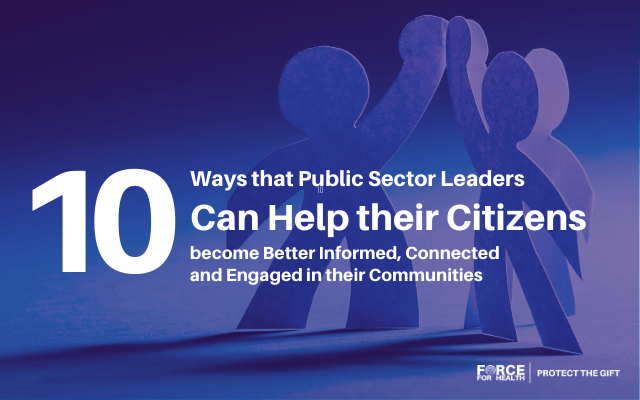
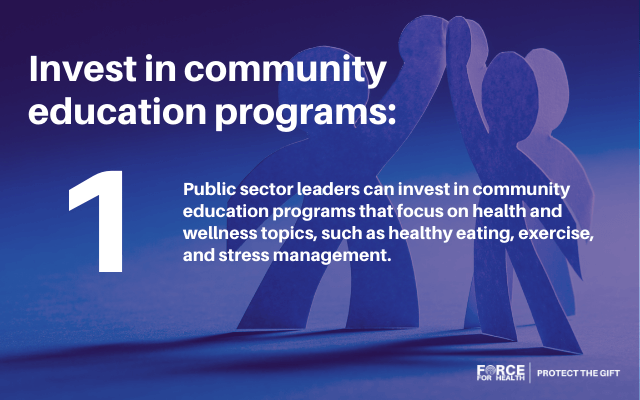
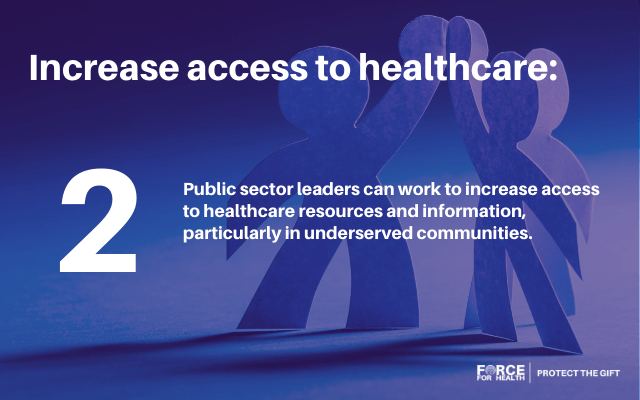
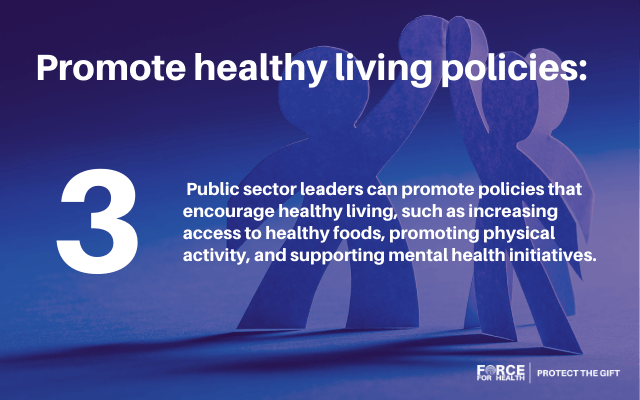
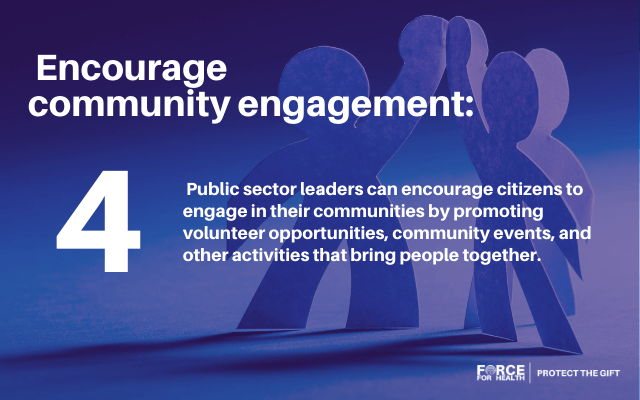
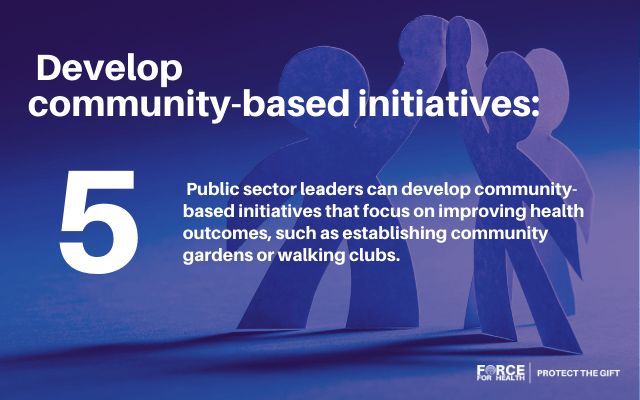
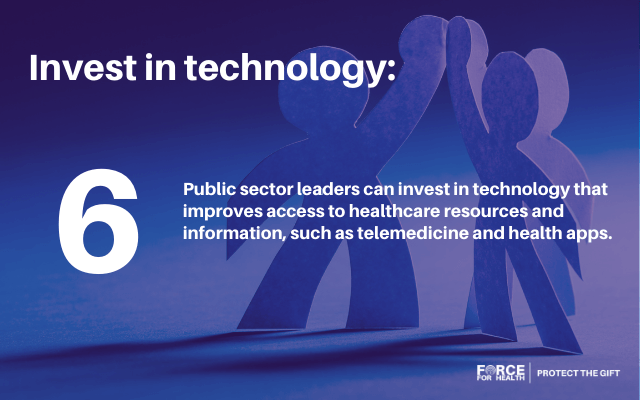
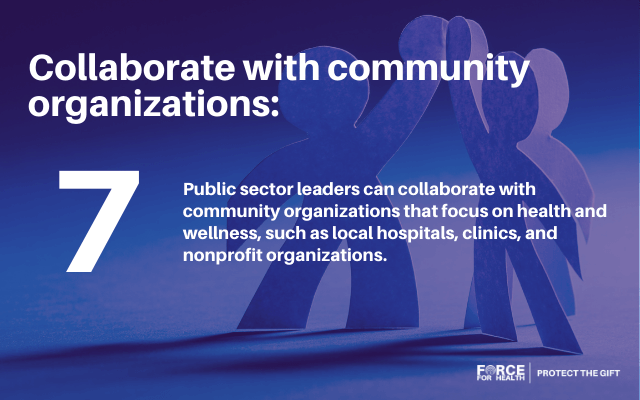
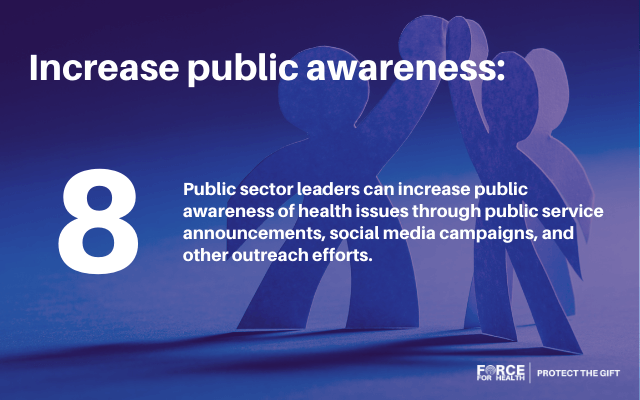
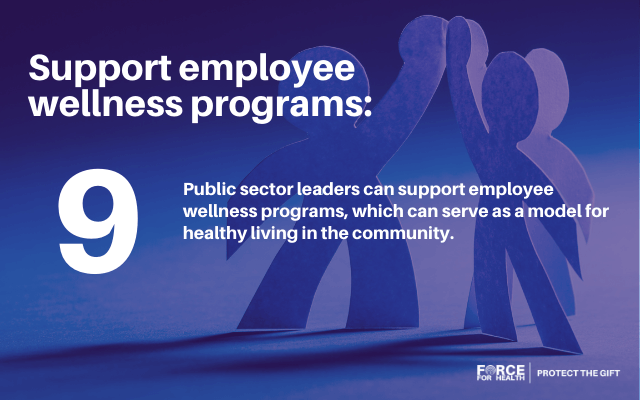
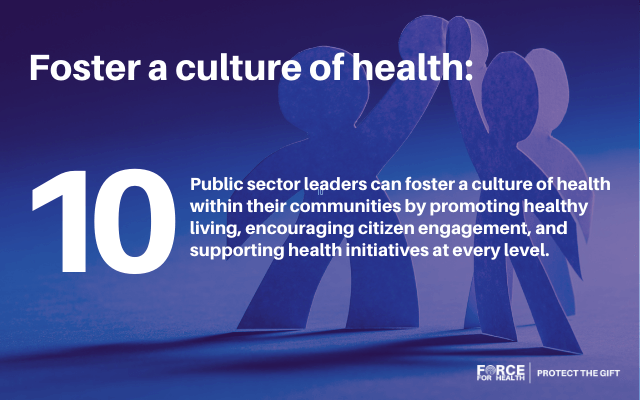
Are you a Community Leader looking to address these issue more effectively?
Are you ready to activate your region into the Reality Health Games?
Do you think your community has what it takes to lead as a national model and be showcased in the Reality Health Games?
If so, we’d love to talk to you! Please book some time with us here, and let’s find a way to make it happen!

